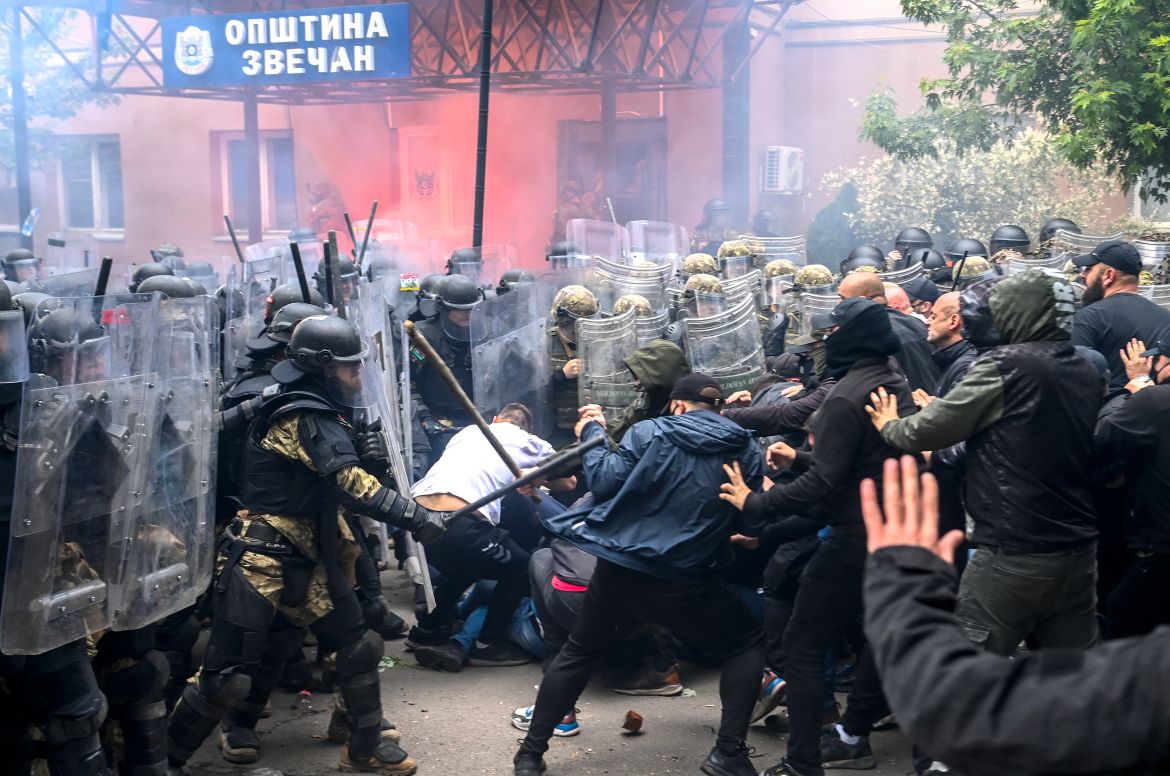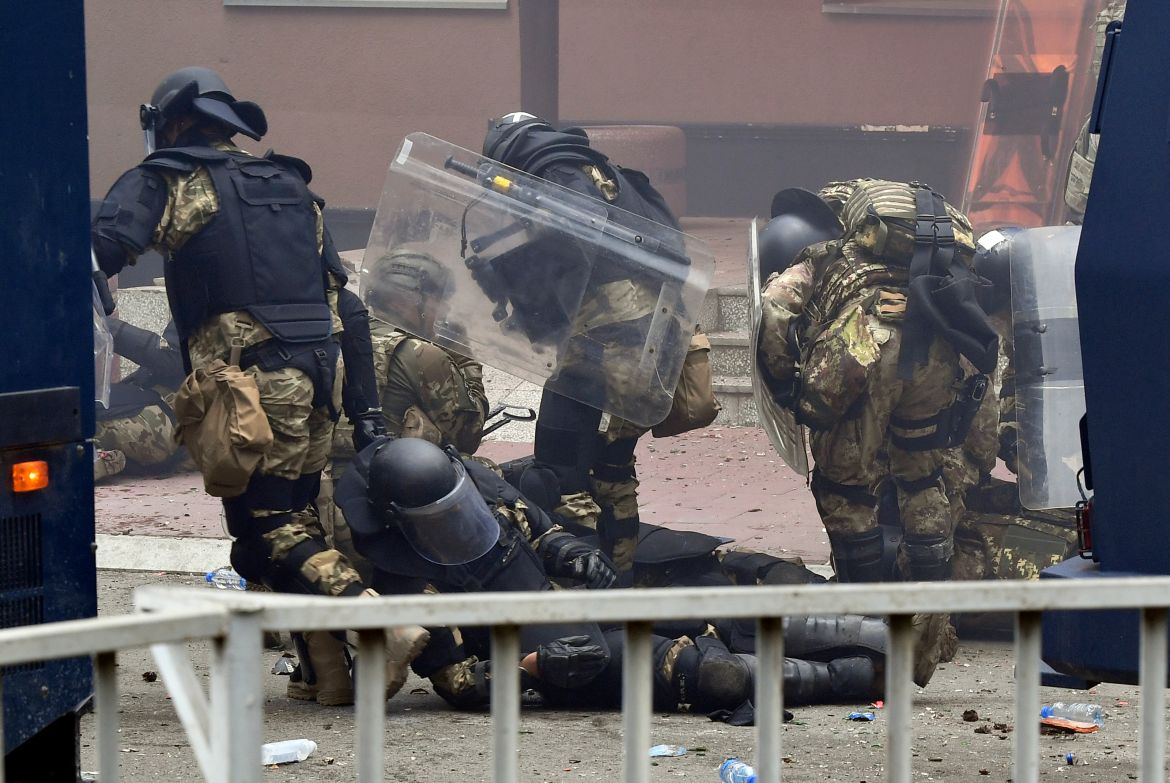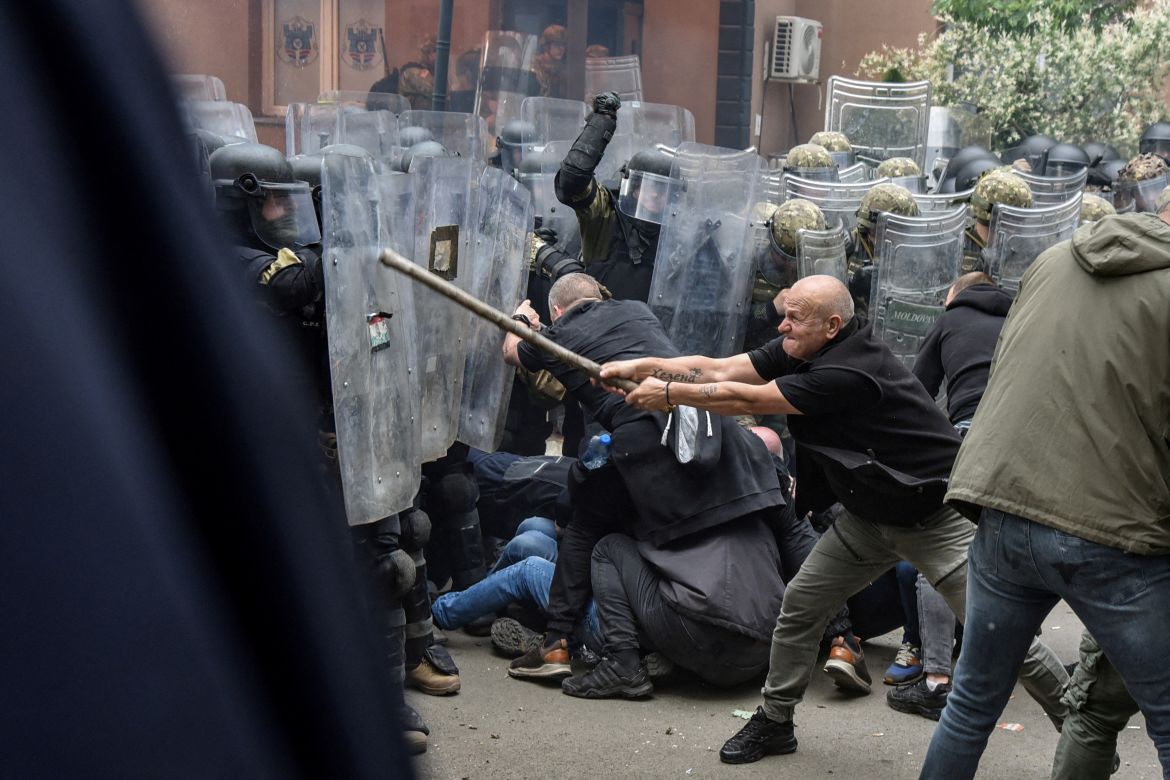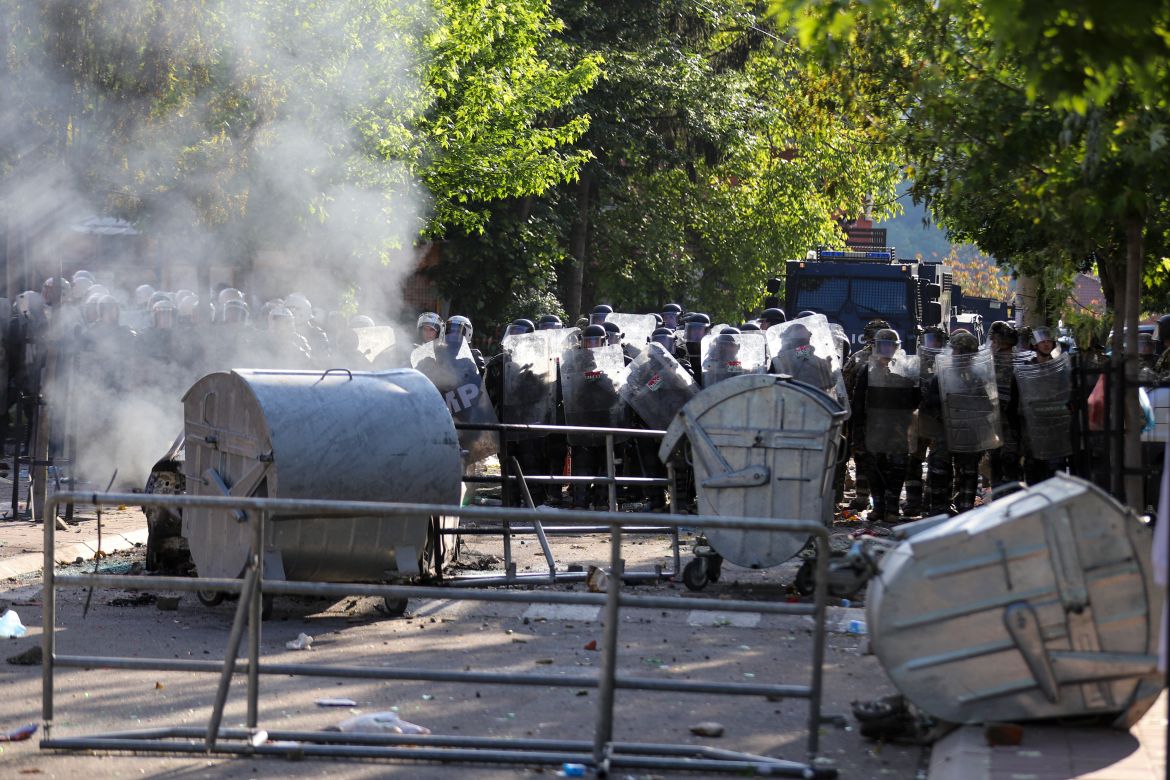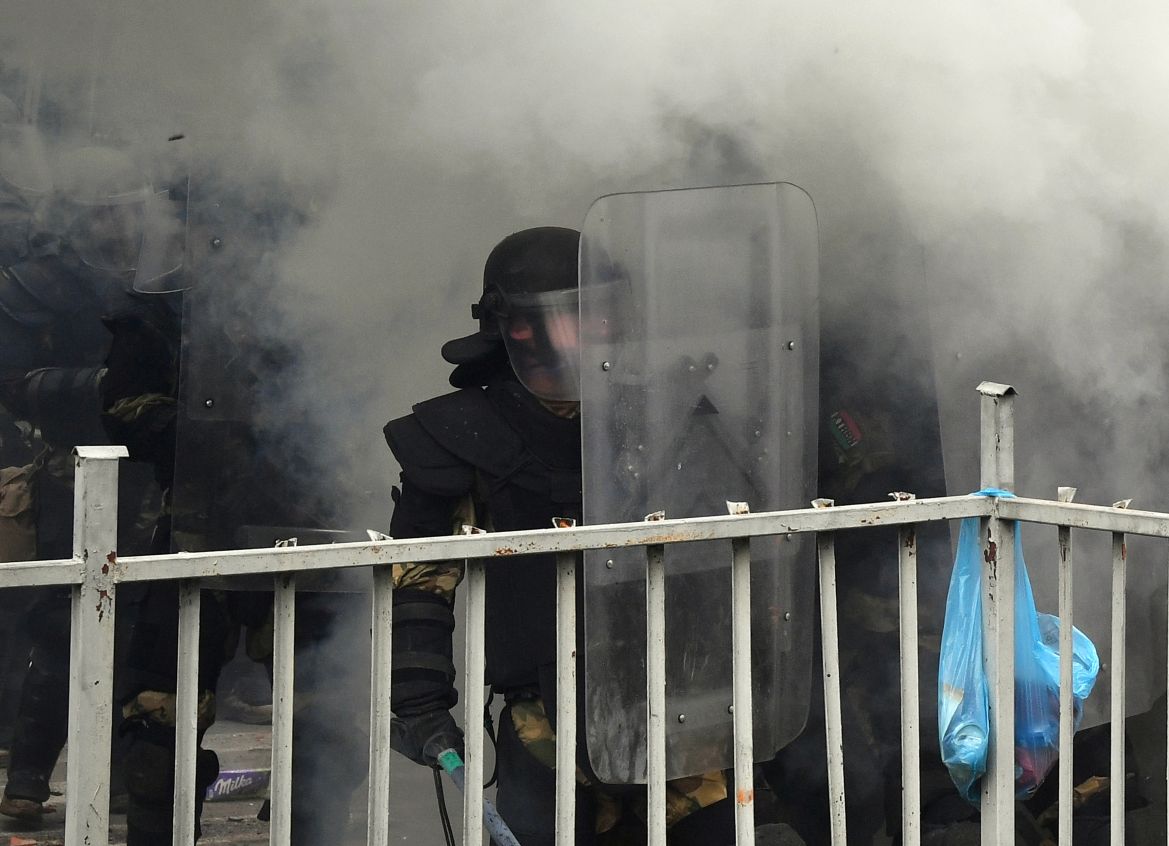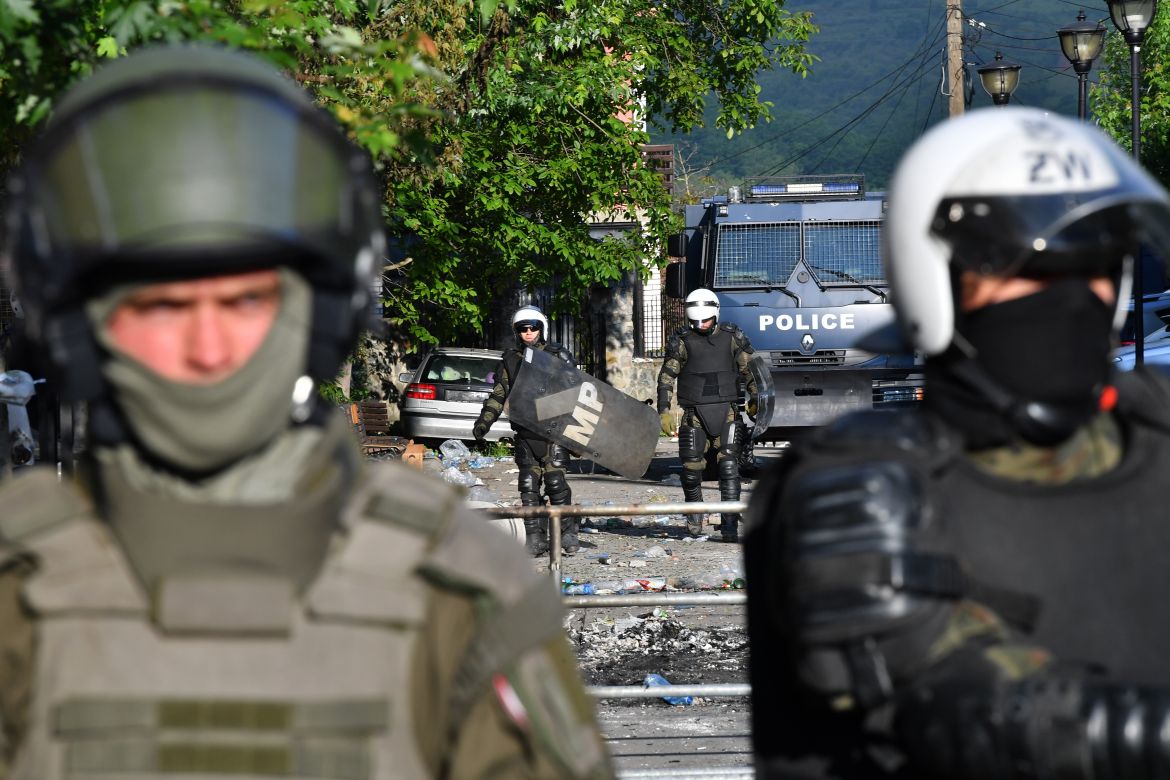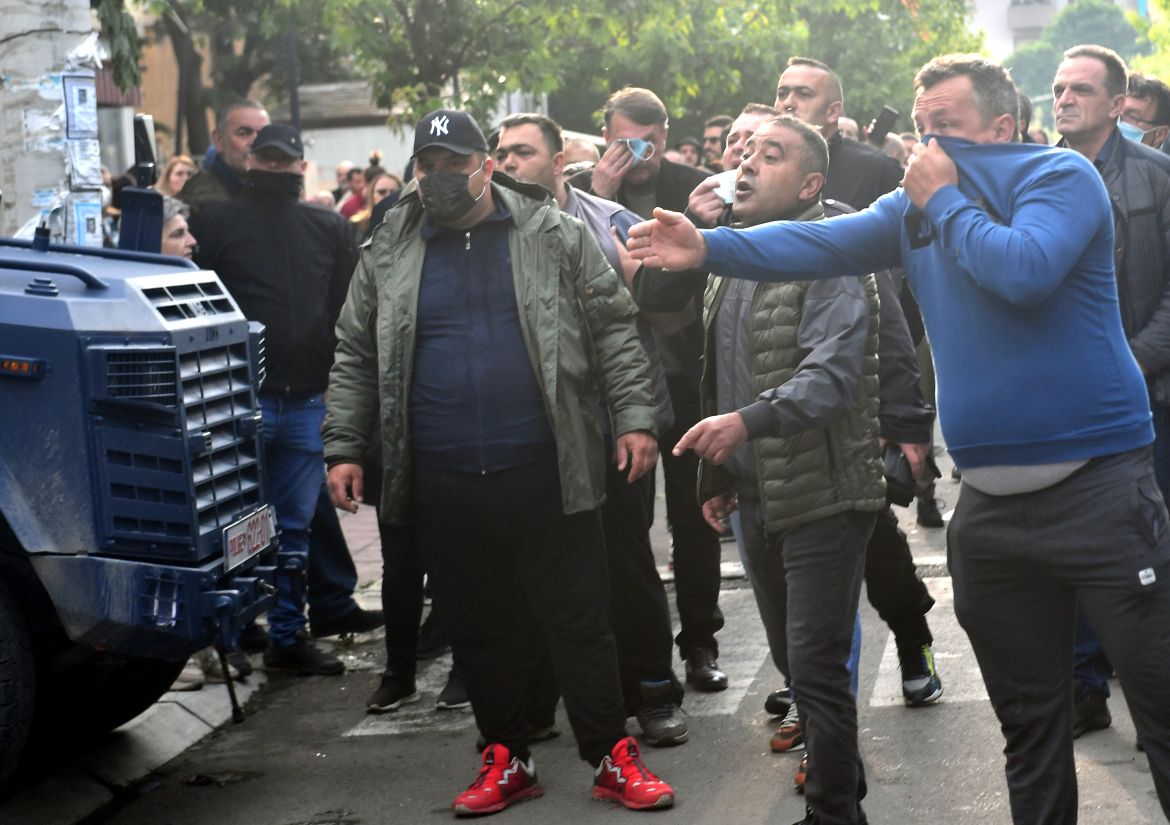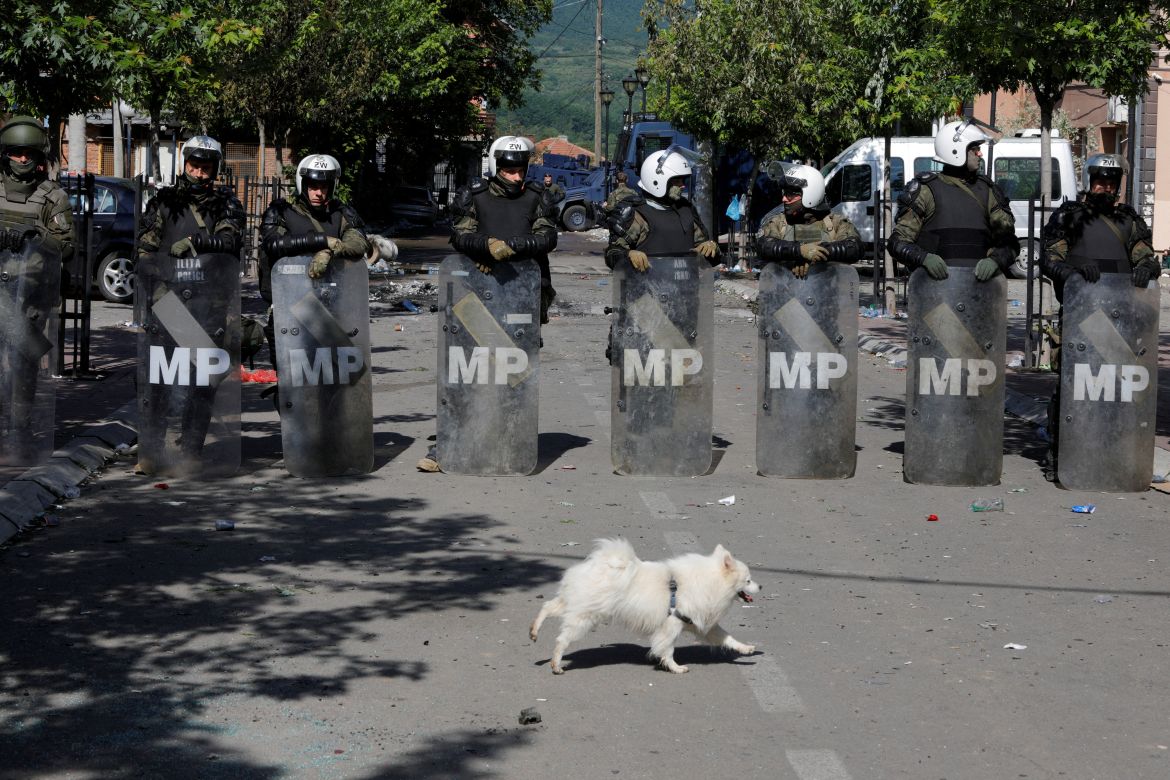In Pictures
International peacekeepers injured in clashes in northern Kosovo
Clashes with Serb protesters in Kosovo left at least 30 peacekeepers injured as tensions flare in the Balkan nation.

At least 30 peacekeepers of the NATO-led mission in Kosovo were injured on Monday in clashes with Serb protesters who demanded the removal of recently-elected ethnic Albanian mayors.
The Kosovo Force (KFOR) said it had faced “unprovoked attacks” while countering a hostile crowd after demonstrators clashed with police and tried to force their way into a government building in the northern town of Zvecan.
Serbian President Aleksandar Vucic said 52 Serbs were also hurt, three seriously, while one was “wounded with two gunshots by [ethnic] Albanian special forces”.
Hungary’s defence minister said on Facebook “more than 20 Hungarian soldiers” were among the wounded, with seven in serious but stable condition.
Italy’s foreign minister said three of its soldiers were seriously wounded, and the country’s prime minister, Giorgia Meloni, joined NATO in calling for “all parties to take a step back to lower tensions”.
Boycotted elections
Kosovo’s Serbs boycotted last month’s elections in northern towns, which allowed ethnic Albanians to take control of local councils despite a very low turnout of less than 3.5 percent.
Kosovar Prime Minister Albin Kurti’s government officially installed the mayors last week, defying calls to ease the tensions by the European Union and the United States, which have both supported the territory’s 2008 independence from Serbia.
Many Serbs are demanding the withdrawal of Kosovo police forces – whose presence in northern Kosovo has long sparked resistance – as well as the ethnic Albanian mayors they do not consider their true representatives.
NATO strongly condemned the “unprovoked” attacks against KFOR troops, adding that such actions were “totally unacceptable”.
“Violence must stop immediately. We call on all sides to refrain from actions that further inflame tensions, and to engage in dialogue,” NATO said in a statement.
Kosovo police said “organised” demonstrators rallied in northern Kosovo towns, home to many ethnic Serbs who reject Kosovo’s independence from Serbia.
Kosovo unilaterally declared independence from Serbia in 2008, and Belgrade and its key allies Russia and China have refused to recognise it, effectively preventing Kosovo from having a seat at the United Nations.
Serbs in Kosovo remained largely loyal to Belgrade, especially in the north, where they make up a majority and reject every move by Pristina to consolidate its control over the region.

